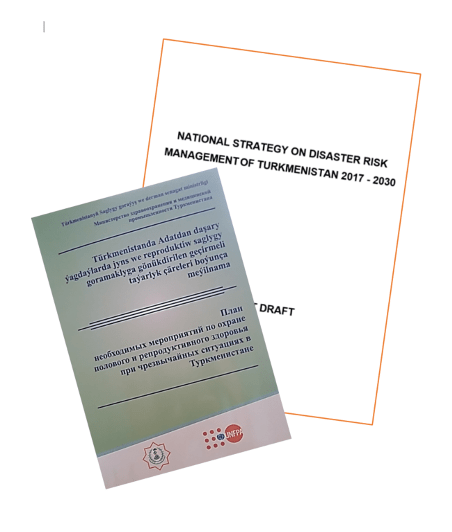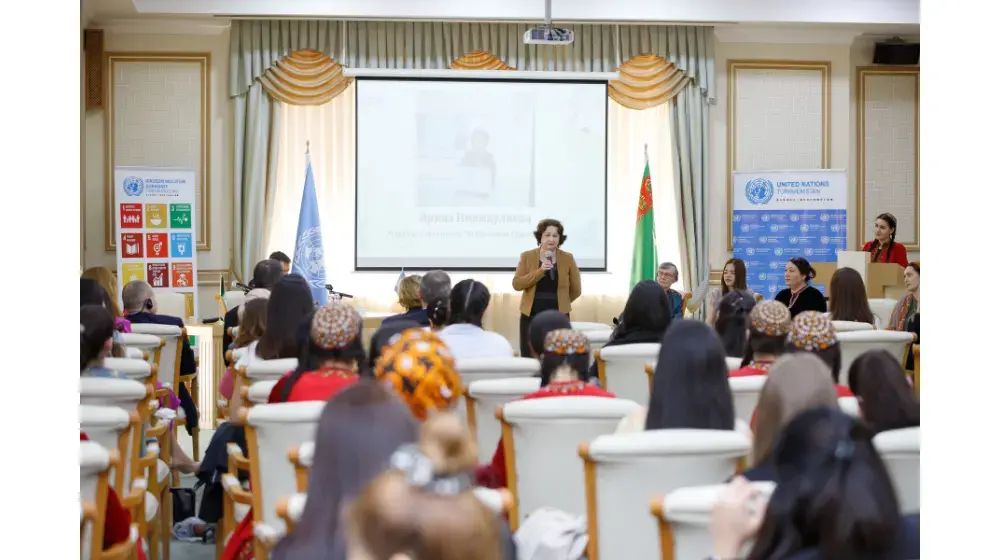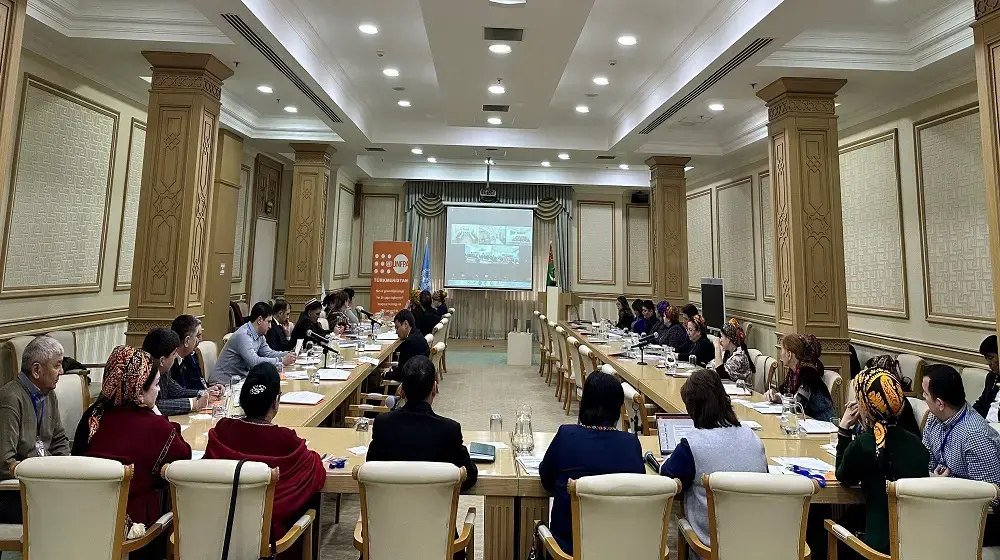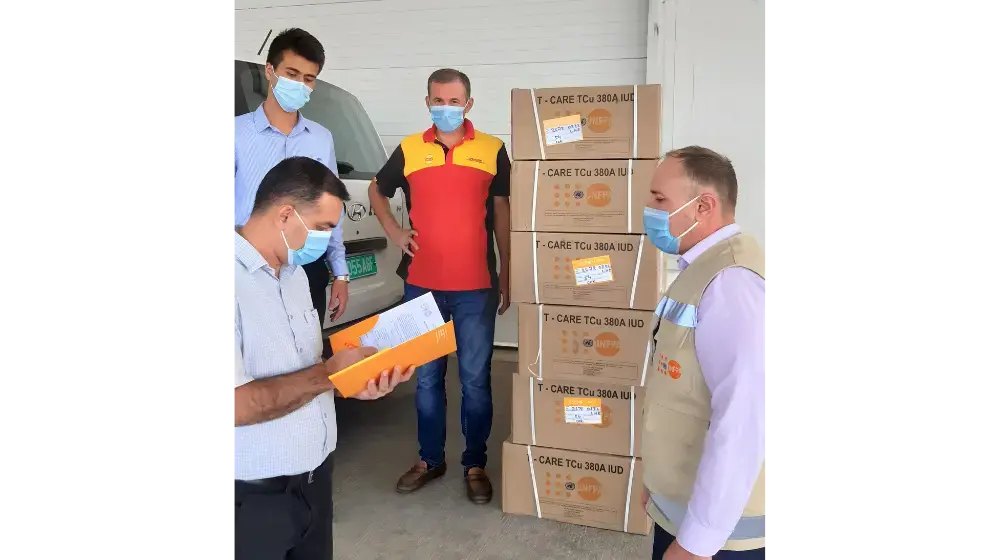Needs of pregnant women, young girls and adolescents will be addressed in the National Strategy on disaster risk (DR) management of Turkmenistan 2017 – 2030. UNFPA, United Nations Population Fund took part at the round table on discussion of the draft National strategy, organized jointly by UNDP and UNICEF with participation of the State Commission for Emergency Situations of Turkmenistan and other respective ministries and government agencies.
Sendai Conference on Disaster Risk Reduction in Japan in March 2015 has created political commitments towards the implementation of the Sendai Framework for Disaster Risk Reduction 2015-2030. Turkmenistan is no exception, as the President of Turkmenistan announced at the Conference the development of a national strategic action plan on disaster risk management for Turkmenistan.
While the National Strategy aims to facilitate the fulfillment of the international commitments made by the Governments towards the Sustainable Development Goals and the Sendai Framework, it is also designed to steer the joint efforts of all relevant stakeholders in Turkmenistan to increase public resilience to natural and man-made disasters and climate change. According to the draft document, it provides a strategic framework for disaster preparedness, prevention, response and recovery.
An important part of the Strategy will be the integration of the endorsed National Action Plan (NAP) on Minimum Initial Reproductive Health Service Package (MISP), which was advocated by UNFPA during the discussion of the National Strategy. The MISP plan has been endorsed in 2014 by the Government of Turkmenistan and helps address the specific needs of pregnant women, young girls and adolescents, and prevent gender-based violence at the onset of an emergency. It includes four key components: 1) Coordination; 2) Maternal health; 3) Gender-based violence; and 4) Sexually transmitted diseases.
“Women and adolescents are particularly vulnerable among the disaster-affected population,” said Ms. Bayramgul Garabayeva, UNFPA Assistant Representative during the round-table. “They are at risk of complications during the pregnancy and delivery, gender based violence, unwanted pregnancies, unsafe abortions and sexually transmitted infections. This makes it indispensable to integrate the reproductive health and gender-based violence issues and the endorsed NAP on MISP into the planning and management of disaster situations on the national level,” she added.
What is MISP and why is it important?
In an emergency setting, emphasis is often placed on life-saving interventions, such as providing water and sanitation, control of communicable diseases, treatment of injuries and ensuring proper nutrition.
However, it is important to be ready to provide reproductive health care services on timely basis during the emergency setting as well. On average, four percent of the disaster affected population makes up pregnant women. Fifteen percent of these pregnant women will develop complications during delivery and will need lifesaving services. The MISP for Reproductive Health can save their life.
The MISP for Reproductive Health is a set of priority activities with goal of reducing mortality, morbidity and disability among populations affected by crises, particularly women and girls. The MISP contains set actions and guidelines for providing coordinated emergency reproductive health care services during the earliest phases of an emergency and guides the planning for comprehensive reproductive health services when the situation has stabilized.
Close partnership continues with the Government of Turkmenistan, civil society and international organizations for better preparedness within the framework of the National Action Plan. Currently, 74 national specialists have already been trained on MISP in disaster prone zones.
***
For additional information, please contact:
Bayramgul Garabayeva, UNFPA Assistant Representative
garabayeva@unfpa.org
Ene Tuyliyeva, Advocacy Communication Associate
tuyliyeva@unfpa.org
Tel: 488324
Web: turkmenistan.unfpa.org, tm.one.un.org





